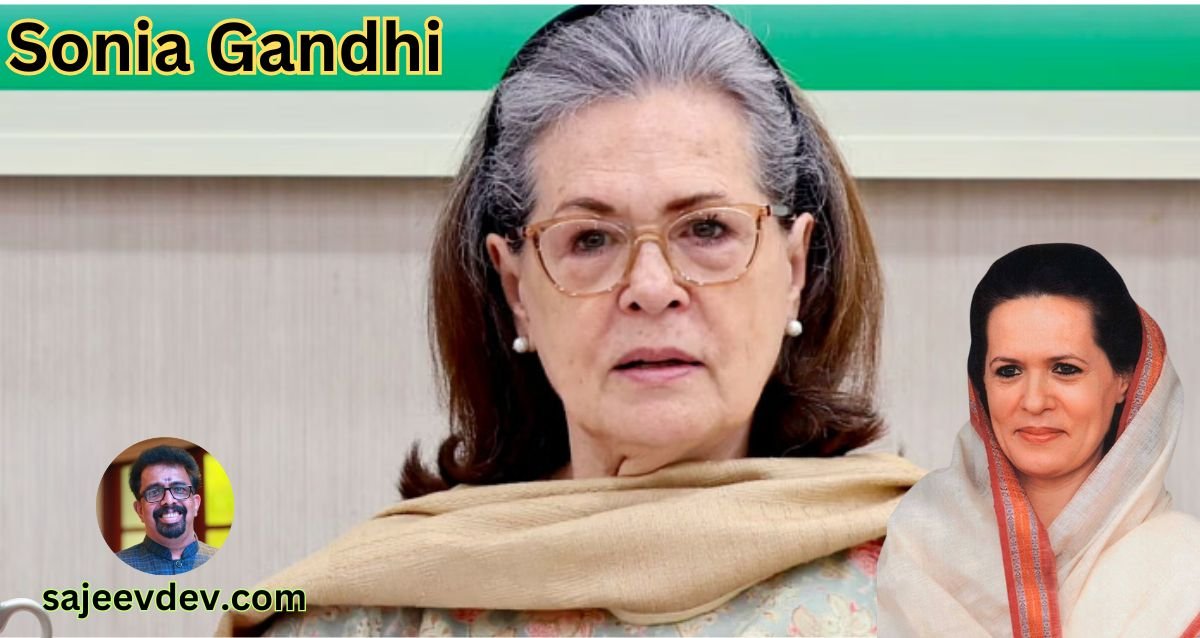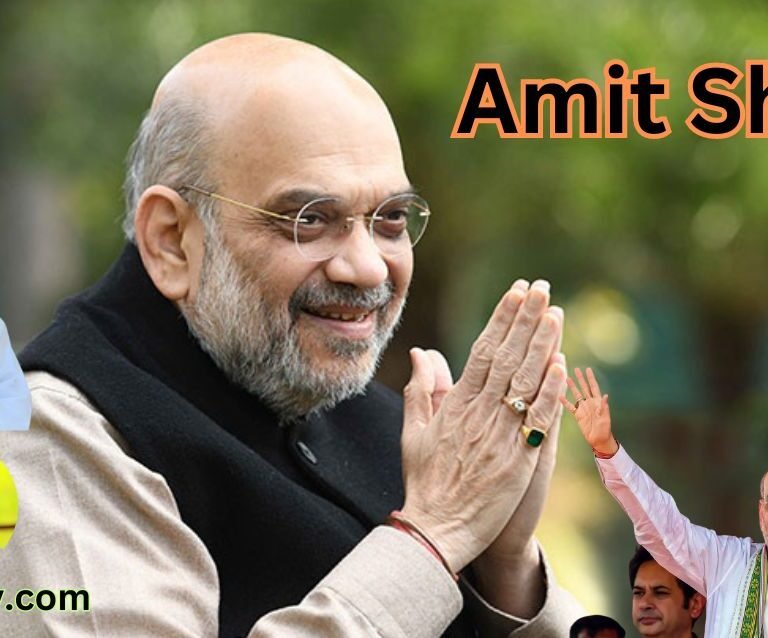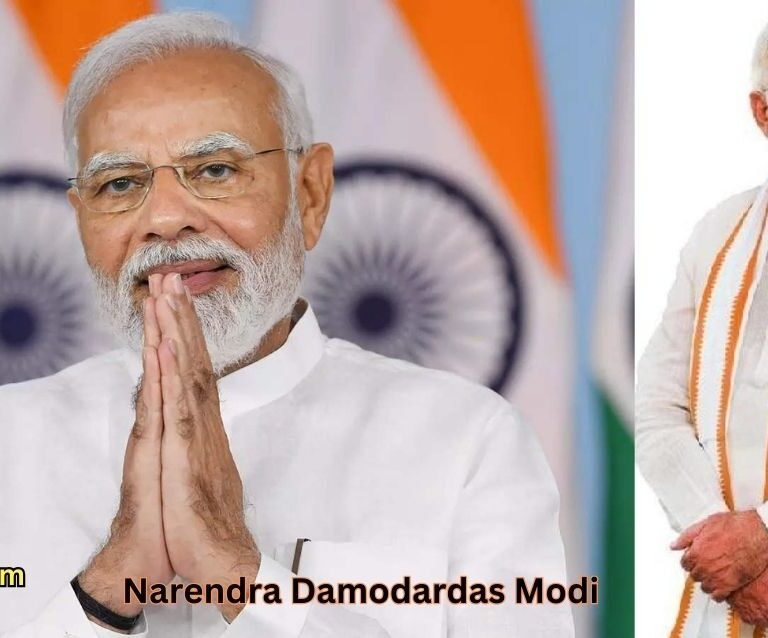Sonia Gandhi, originally named Edvige Antonia Albina Maino
Sonia Gandhi, originally named Edvige Antonia Albina Maino, was born on December 9, 1946, in the small village of Lusiana in Italy. She was born into a modest and close-knit family, with her parents Paola Maino and Stefano Maino playing pivotal roles in her upbringing. Paola, a homemaker, and Stefano, a building contractor, instilled in Sonia the values of hard work, resilience, and community spirit from a young age. Her upbringing in rural Italy provided Sonia with a strong foundation rooted in traditional Italian customs and practices.
Sonia’s educational journey saw her attending the Bell Educational Trust in Cambridge, England, where she pursued English studies. This period was transformative for Sonia as she navigated the academic rigors and embraced the cultural diversity of Cambridge. It was during her time in Cambridge that she met Rajiv Gandhi, an encounter that would alter the trajectory of her life. Their union eventually led Sonia to India, marrying Rajiv Gandhi in 1968 and making India her new home.
The transition from Italy to India brought about significant cultural shifts. Moving from the serene landscapes of Lusiana to the chaotic yet vibrant milieu of India posed considerable challenges. Sonia had to adapt to different social norms, linguistic barriers, and a new family dynamic within one of India’s most prominent political families. These personal transformations were not only physical but also deeply emotional, as she gradually embraced India’s rich cultural heritage and complex societal structure.
Her early life and background laid the groundwork for her future role in Indian politics. The intercultural experiences and the ability to adapt and thrive in diverse environments became crucial attributes that defined Sonia Gandhi’s journey. Her early life in Italy, coupled with her eventual integration into Indian society, built a unique persona that would later influence her leadership style and political strategies within the Indian National Congress.
Sonia Gandhi’s marriage to Rajiv Gandhi in 1968 marked a significant transformation in her life, bridging the gap between her Italian upbringing and her new Indian identity. Born Sonia Maino in Lusiana, Italy, she embraced a different cultural paradigm upon her union with Rajiv, the eldest son of Indira Gandhi, India’s then Prime Minister. This union not only changed her personal life but also placed her amidst the intricate web of Indian politics and society.
Adapting to Indian culture was a journey that required resilience and commitment. Sonia quickly immersed herself in her new familial and social responsibilities. Learning the Hindi language and embracing Indian customs and traditions, she demonstrated a commendable ability to integrate into the diverse and complex fabric of Indian life. This adaptability was crucial as she navigated her new role within one of India’s most influential families.
As a spouse, Sonia Gandhi stood by Rajiv Gandhi through various phases of their married life, providing unwavering support both personally and professionally. Rajiv, who initially had no aspirations of joining politics, eventually stepped into the political arena following the tragic death of his brother, Sanjay Gandhi, in 1980. During this time, Sonia’s support was indispensable, both in terms of providing a stable family environment and aiding Rajiv’s political ambitions.
Despite her proximity to political power, Sonia Gandhi was initially reluctant to engage directly in politics. Her hesitation stemmed from a desire to preserve her family’s private life and shield her children from the public eye. Her reluctance was a testament to the challenges and scrutiny associated with being part of the Gandhi family. Her primary focus remained on her immediate family, nurturing her children and supporting her husband’s political journey from behind the scenes.
Overall, Sonia Gandhi’s marriage to Rajiv Gandhi was a turning point that influenced not only her personal trajectory but also her eventual role in Indian politics. The adaptation to a new culture, her steadfast support as a spouse, and her initial political reticence are crucial facets of her life during this period.
Entry into Indian Politics
The entry of Sonia Gandhi into the tumultuous landscape of Indian politics was an event precipitated by a convergence of personal and national exigencies. Sonia Gandhi, originally born in Italy, found herself thrust into the political limelight following the tragic assassination of her husband, Rajiv Gandhi, in 1991. In the immediate aftermath of this devastating event, the Indian National Congress, faced with a leadership vacuum, naturally turned to Sonia, albeit she had maintained a distance from active political engagement up until that point.
Her initial response was characterized by profound hesitation. Despite her close association with one of India’s most influential political families—the Nehru-Gandhi dynasty—Sonia Gandhi had always been an outsider, both culturally and politically. Her reluctance stemmed not only from a personal preference for privacy but also from a palpable awareness of the challenges she would face as someone perceived as foreign by a significant segment of the population. There was, understandably, a period of reflection on her part, during which she rigorously contemplated the implications of stepping into a role that, by its very nature, would subject her to intense public scrutiny and political critique.
Nevertheless, the pressing call for continuity and stability within the Congress party eventually catalyzed her decision to assume a leadership role. Her eventual foray into politics was marked by a diligent effort to bridge the gap between her personal apprehensions and the expectations of millions who looked to her for guidance. In 1998, Sonia Gandhi formally entered the political arena as the President of the Indian National Congress, a position which would see her become one of the most influential figures in modern Indian political history. This decision underscored not only her commitment to upholding her late husband’s legacy but also a profound dedication to the democratic process in India.
Rise within the Indian National Congress
Sonia Gandhi’s journey within the Indian National Congress (INC) is a saga of determination, resilience, and strategic acumen. Initially hesitant to enter the political arena after her husband Rajiv Gandhi’s assassination in 1991, Sonia Gandhi eventually took up the mantle of leadership, invigorating the party with renewed vigor and direction.
Her entry into active politics became official in 1998 when she was elected President of the Indian National Congress. At that time, the party was facing significant challenges, both internally and externally. Sonia Gandhi’s leadership marked a turning point, as she meticulously worked to consolidate her influence within the party and restore its prominence on the national stage. One of her early strategic decisions was to foster alliances with regional parties, thus broadening the INC’s base and enhancing its electoral prospects.
Despite facing skepticism and opposition from various quarters, including within the party, Sonia Gandhi remained steadfast. Her ability to navigate complex party politics was evident in her efforts to mediate factional disputes, streamline party operations, and focus on rebuilding the party’s grassroots network. This unwavering dedication bore fruit during the 2004 general elections, where the INC, against all odds, led the United Progressive Alliance (UPA) to a decisive victory, propelling Sonia Gandhi to the forefront of Indian politics.
Among her notable achievements was the UPA government’s implementation of progressive policies and initiatives aimed at social welfare and economic development. The National Rural Employment Guarantee Act (NREGA) and the Right to Information Act (RTI) are prime examples of her leadership’s impact on governance. These policies not only strengthened the INC’s position but also underscored Sonia Gandhi’s commitment to inclusive growth and transparency.
In conclusion, Sonia Gandhi’s ascent within the Indian National Congress is a testament to her strategic insight and leadership abilities. Her tenure as party president revitalized the INC, ensuring its relevance in the dynamic landscape of Indian politics.
Longest-Serving President of the Indian National Congress
Sonia Gandhi’s tenure as the longest-serving president of the Indian National Congress (INC) is a significant chapter in the annals of Indian politics. Taking over the reins in 1998, she guided the INC for more than two decades, a period marked by remarkable transformations and challenges. Her leadership style, characterized by prudence, resilience, and an unwavering commitment to the party’s core values, played an influential role in navigating the party through diverse socio-political landscapes.
Gandhi’s presidency coincided with critical periods in India’s democratic journey, including coalition politics and economic liberalization. Under her stewardship, the INC executed several key policies and initiatives aimed at socio-economic development and inclusive growth. One notable policy was the National Rural Employment Guarantee Act (NREGA), which aimed to provide employment and enhance livelihood security in rural areas. Another flagship initiative was the Right to Information Act, which significantly increased transparency in government functioning.
Her ability to maintain the party’s cohesion and prominence amidst internal and external adversities underscored her strategic acumen. Despite initial reservations about her foreign origin, Sonia Gandhi managed to earn widespread respect and support within the party ranks and among the electorate. Her tenure was also distinguished by her efforts to decentralize power within the INC, fostering a more democratic decision-making process. This approach enabled the party to retain a broad support base across diverse regional and demographic lines.
The socio-political landscape during Gandhi’s leadership was marked by significant shifts, including the rise of regional parties and an evolving voter demographic. Notably, her leadership during the 2004 and 2009 general elections, which led to the formation of the United Progressive Alliance (UPA) government, was a testament to her political acumen and ability to forge critical alliances. Her tactical negotiations and coalition-building ensured the INC’s leadership in a multi-party system, thereby maintaining the party’s role as a central pillar of Indian politics.
In essence, Sonia Gandhi’s legacy as the longest-serving president of the Indian National Congress is intricately linked with her strategic vision, inclusive policies, and a committed pursuit of the party’s values. Her leadership has left an indelible mark on the Indian political landscape, influencing the trajectory of both the party and the nation during her tenure.
Contributions to Indian Society and Governance
Sonia Gandhi has left an indelible mark on Indian society and governance through her relentless efforts in social, economic, and political reforms. A key figure in the Indian National Congress, she has not only been a political leader but also an advocate for numerous causes aimed at improving the well-being of the citizens of India. Throughout her tenure, Gandhi has championed various initiatives that have significantly impacted rural development, women’s empowerment, and education.
One of her most notable contributions is the establishment of the Rajiv Gandhi Charitable Trust. This organization has been instrumental in implementing numerous programs aimed at alleviating poverty and promoting sustainable development. Key projects under the trust include the Rajiv Gandhi Mahila Vikas Pariyojana, which focuses on women’s empowerment in some of the most backward regions of India. By providing self-help groups and creating opportunities for economic independence, this initiative has improved the lives of countless women across the nation.
Moreover, Gandhi has played a pivotal role in the introduction and execution of the National Rural Employment Guarantee Act (NREGA). This landmark legislation has provided millions of rural households with a safety net through guaranteed employment, thus addressing the issue of rural unemployment and fostering economic stability. Her advocacy for NREGA underscores her commitment to inclusive growth and social justice.
In addition to her work in poverty alleviation and employment generation, Sonia Gandhi has been a robust proponent of healthcare and education reforms. Under her leadership, the Indian National Congress has pushed for the Right to Education Act, ensuring free and compulsory education for children. Her efforts in these areas highlight a comprehensive approach to governance that prioritizes human development and social equity.
Sonia Gandhi’s contributions to Indian society and governance reflect a dedication to fostering a more equitable, prosperous, and inclusive India. Her comprehensive approach to addressing social, economic, and political issues continues to inspire and influence policy-making in the country.
Family Life and Personal Challenges
Sonia Gandhi, an emblematic figure in Indian politics, has had a family life marked by profound personal and emotional dimensions. Her relationship with her children, Rahul Gandhi and Priyanka Gandhi Vadra, stands as a testament to the deep bond and resilience within the family. Both Rahul and Priyanka have followed in their mother’s footsteps, choosing paths that lead them into the world of politics, thereby extending their family’s long-standing political legacy. Sonia’s guidance and unwavering support have been pivotal in their political journeys, molding them into significant figures within the Indian National Congress (INC).
Balancing her personal life with her demanding political career has always been a delicate act for Sonia Gandhi. Entrenched in the public eye, she managed to maintain a semblance of privacy, ensuring her family life did not overshadow her political responsibilities. Despite the formidable expectations associated with her role, Sonia Gandhi strove to provide a nurturing environment for her children while addressing the myriad challenges that came with her political ascension.
Sonia Gandhi’s life has not been devoid of personal challenges. Her health has been a particularly pressing concern over the years, with numerous reports of her undergoing treatments for various ailments. These health issues have not only impacted her personally but have also affected her capacity to lead the INC, compelling her to take temporary breaks from active politics.
In addition, Sonia Gandhi’s political career has been marred by controversies and relentless scrutiny. From allegations of corruption to political rivalries, she has faced numerous adversities that tested her resilience. Yet, through it all, Sonia’s determination and commitment to her political responsibilities have remained unwavering. Her ability to navigate through these personal and political trials has reinforced her stature as a prominent figure in Indian politics.
Thus, Sonia Gandhi’s family life and personal challenges contribute to the broader narrative of her legacy, reflecting a life defined by tenacity, dedication, and a profound commitment to both her family and her political responsibilities.
Legacy and Future Prospects
Sonia Gandhi’s tenure as a central figure in Indian politics has left an indelible mark on the Indian National Congress and the broader political landscape of the nation. As the long-serving president of the Indian National Congress, her leadership has been both lauded and criticized, symbolizing resilience and adaptability in times of political turbulence. Under her guidance, the party witnessed significant electoral victories, notably in 2004 and 2009, which solidified the Congress’s position as a key player in Indian politics.
Gandhi’s legacy can be evaluated through multiple dimensions. Her steadfast commitment to secularism, social justice, and economic reforms has resonated with a substantial section of the Indian populace. She has been a vocal advocate for inclusive growth and has played an instrumental role in shaping policies that aim to bridge socio-economic disparities. Furthermore, her leadership during pivotal moments, such as the United Progressive Alliance (UPA) coalition government, showcases her strategic acumen and ability to navigate complex political landscapes.
Looking forward, Sonia Gandhi’s political influence is anticipated to be perpetuated through her children, Rahul Gandhi and Priyanka Gandhi Vadra. Rahul Gandhi’s tenure as the former president of the Congress party and his continued involvement in politics suggest a continuity of Sonia Gandhi’s vision and ethos. Similarly, Priyanka Gandhi Vadra’s increasing political engagements highlight the potential for a sustained Gandhi presence in shaping the party’s future direction.
Despite numerous challenges, including changing political dynamics and the rise of opposing forces, Sonia Gandhi’s enduring legacy remains a testament to her leadership. The Indian National Congress, under her stewardship, has navigated through significant transformations, and her contributions continue to be a point of reference for party ideologues. As the party evolves, balancing tradition with modern political strategies, Sonia Gandhi’s influence will invariably be a touchstone for evaluating the party’s trajectory and resilience in the face of new opportunities and challenges.








